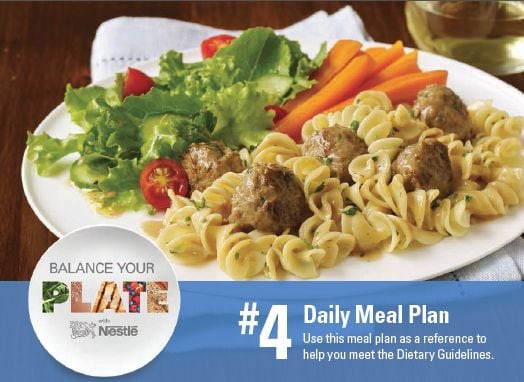The initiative - which includes daily meal plans containing Nestlé frozen entrees - also draws upon the findings of a survey of 2,000 Americans by Harris Interactive showing that many consumers regard frozen entrees as standalone meals, and frequently don’t add vegetables, fruit, whole grains or dairy when they serve them.
Meanwhile, just four in 10 were aware of the government’s MyPlate initiative.
Nestlé Prepared Foods USA CEO Frank Higgins said: “More than two thirds of people surveyed who ate frozen foods believed they represented a balanced meal.
"While many frozen meals do feature components from several food groups, the amounts vary and may not always provide full servings."
The meal plans are designed to help consumers meet energy and nutrient goals for a 2,000-calorie diet, he said.
“A key benefit of the Balance Your Plate program is that it promotes greater nutrient density with every meal.”
Sometimes our industry is singled out, but I'm convinced that we are part of the solution
The scheme was launched the week after Nestlé CEO Paul Bulcke told shareholders at the company’s AGM that “we are part of society” and “therefore, not only have to carry out our business, but we also have to assume our responsibilities towards society at large”.
He added: “There are challenges in the world such as sustainable development, the environment, public health and so on. These problems are complex, very complex. Indeed, sometimes our industry is singled out, but I'm convinced that we are part of the solution.”
A longer life now means fewer calories, but of better quality

Chairman Peter Brabeck-Letmathe went on to tell shareholders that the company is “operating in a new paradigm” and has transformed itself from “a water and beverage company” to become a global “leader in nutrition, health and wellness”.
He added: “Thanks to the food industry and its technologies the calorie intake of the population has increased, resulting in a dramatic extension of life expectancy. However, at the end of the 20th century, this model, which has been valid for 200 years, arrived at a breaking point.
“The additional calorie intake is no longer associated with an extension, but rather a decrease in life expectancy… A longer life now means fewer calories, but of better quality. And this is true not only in the US, but in the industrial world in general and more and more also in developing countries.
“This is the reason why we evolved the positioning of Nestlé… I think I can say Nestlé has understood and embraced this new global trend earlier than other major players in the food industry.”
Nestlé has embraced global health & wellness trend ‘earlier than other major players’
Nestlé, which posted an 11.8% rise in net profit and organic sales growth of 5.9% in 2012, is “constantly improving the nutritional value of our portfolio by reducing salt, sugar and fat in our products; by fortifying them with micronutrients by adding whole grains, for example”, he said.
It is also “systematically improving our communication to consumers, from on-pack labeling to advertising and social media to help them choose healthier diets” and is “particularly mindful of our responsibility towards children”, he added.
Click here for full details of the Balance Your Plate initiative.
